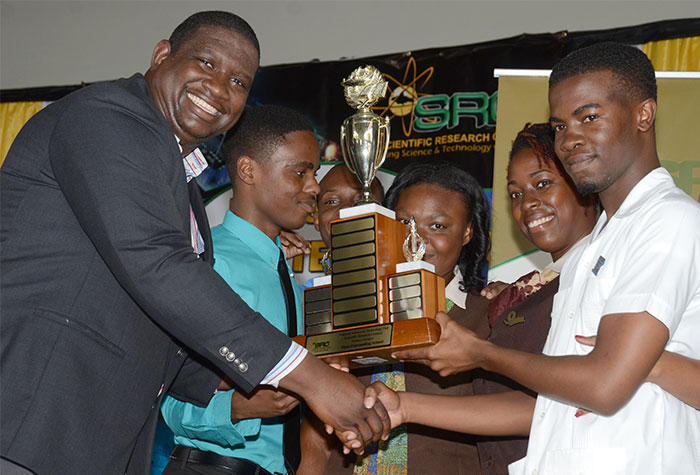Mico to Analyse Wick Irrigation Technology
By: , June 22, 2016The Key Point:
The Facts
- The students and project management team are seeking to complete the reconfiguration by year end.
- Additionally, she says they also want to expand the variety of crops that are cultivated in the College’s garden.
The Full Story
The extent to which The Mico University College’s award-winning wick irrigation system is able to facilitate and sustain significant crop yields will be analysed during a research project to be conducted over the summer.
The project aims to determine how well garden fruits and vegetables can be grown using less water than is used under conventional farming practices and with significantly reduced monitoring.
Science, Technology, Engineering and Mathematics (STEM) students at the university, who will undertake the project, will focus on the growth patterns of plants.
This is to determine whether plants fare better when the newly developed technology, which provides a controlled method of irrigation, is utilised, compared to conventional methods.
The wick irrigation system copped the top award at this year’s Scientific Research Council (SRC) National Science Fair.
Project Manager and Lecturer in Geography and Environmental Science, Denese Walker McCarthy, tells JIS News that the system dispenses harvested rainwater, stored in an accompanying tank, utilising a wick cylinder. The cylinder comprises pipes containing a wick made from cloth.
“The wick pulls water from the cylinder and channels it through additional pipes into the plant plots without the assistance of any external force such as gravity,” she explains.
Mathematics student and member of the Mico team that developed the technology, Konor Peters, says the system facilitates the slow release of water, which is monitored using a measuring device known as a hydrometer.
The quantity of water that is released is currently monitored manually. However, the system will eventually be converted to a solar-powered automated format that requires minimal monitoring.
The students and project management team are seeking to complete the reconfiguration by year end.
Citing the technology’s advantages, Mr. Peters notes that “as a farmer, you will not need to water the plant every day; the system will take care of that for you”.
Additionally, he highlights its compactness which renders it manageable, particularly for persons with limited land and storage space.
“It is ideal for use on the roofs of buildings, and is recommended for persons in the metropolitan area, who have limited space for farming,” he states.
Mrs. Walker McCarthy says the project was born out of a desire expressed by Mico’s administration for the institution to undertake more scientific research.
Consequent on its development and utilisation by the institution, the students are now in the process of reaping produce from pilot cultivations. These crops include spinach, pak choi, okras, french thyme, coco, yellow yam, callaloo, pepper and pineapple.
Mrs. Walker McCarthy tells JIS News that following the implementation of the solar-powered automation aspect of the project, they will commence experiments utilising the drip irrigation format.
Additionally, she says they also want to expand the variety of crops that are cultivated in the College’s garden.
Further, Mrs. Walker McCarthy says that she wants to expand student participation and will be inviting persons enrolled in the computer science and arts programmes.

